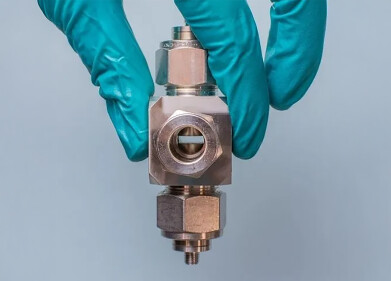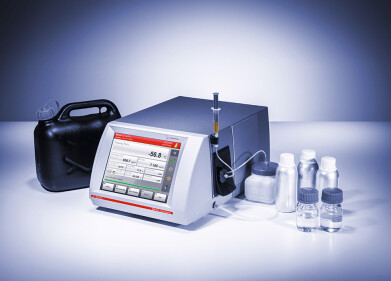Analytical Instrumentation
Distillation specialists give helping hand to developing the green fuels of the future
Oct 06 2021
Reducing CO2 emissions is an important current objective in reducing global warming. The scale and scope of this reduction of CO2 emissions needs to be significant and should be achieved as quickly as possible.
Even with exploring more and more sources of fossil fuels, together with the allied technical improvements in extracting more products out of already existing wells, it is clear that the availability of mineral fuels will end one day and will require replacement by green fuels in order to keep the wheels of industry and commerce turning.
Governments around the globe have decided to lead their countries to a climate-neutral state in the future, in other words, the goal is “zero emissions”. In this regard, the use of well-established technologies with clean energy offer immediate answers. The combustion engine is a well-known technology and liquid-fuel is one of the energy sources with a significant energy density, easy to transport and store and with an already existing corresponding distribution.
The only challenge remaining is: what could be a plausible alternative “green fuel”?
The solutions are almost ready to be implemented: ILUDEST has participated in several projects at universities and research institutes in the field of these renewable energies. One of these alternative fuels is OME (Oxymethylenether) which burns with almost no carbon particles. The OME is produced in a reactor. During the reaction process several by-products, along with OME, are produced. To reach the quality of a Diesel substitute, the OME must be purified in a distillation unit with a high separation efficiency.
It does not take much to turn dreams into reality: tomorrow’s value chain is supposed to be climate-neutral, or at any rate sustainable, and preferably without the use of fossil raw materials. However, the technology that promises prosperity for all without environmental pollution is still a long way off. Today, no one disputes that it is possible in principle to produce fuels and basic chemicals from renewable energy and waste gases. However, these processes also must be economic. And so, institutes, companies and politicians seek the mythical ‘philosopher’s stone’ of instant success in chemical synthesis.
“The processes we need are actually already developed,” says someone who should know: Jakob Burger, Professor of Chemical and Thermal Process Engineering at the Technical University of Munich (TUM), is researching the direct synthesis of artificial fuels with his team at the TUM campus in Straubing, in Germany. The means equipment required is a reactor about the size of a table, plus distillation columns several metres high and a downstream membrane unit. This is a typical pilot plant set-up — but very robust and one that packs a significant punch!
ILUDEST designed and manufactured the distillation modules, comprising two towers, one in glass for operation under vacuum, and a second in stainless steel for operation under overpressure.
Alternative fuels contain several short-chained molecules with very low boiling points. These short-chained molecules must be separated, but separation of these products normally requires very low operating temperatures. Low temperatures can be reached by using expensive cryostats, but another way is to increase the operational pressure of the system. This leads to higher throughputs at the same column diameter compared to atmospheric pressure. The critical point of the products, the possibility to fill and drain the system, as well as pressure equipment directive and explosion proof design must be considered. Pressure distillation units can be realized in stainless steel or special materials, like Hastelloy.
Separation of alternative fuels has also been investigated in a multiple dividing wall column. Inside the column the ascending vapour stream can be separated into two separate parallel working columns. The backflow of one column can be separated as well into two columns.
All customer's enquiries do contain the challenge of combining high separation efficiency with low temperatures, respective pressurized equipment, including the challenge to fill and drain the system adequately.
Publications about further projects already effected are under preparation and will be brought to your attention once available.
Digital Edition
PIN 25.5 Oct/Nov 2024
November 2024
Analytical Instrumentation - Picturing Viscosity – How Can a Viscometer or a Rheometer Benefit You? - Sustainable Grease Formulations: Evaluating Key Performance Parameters and Testing Method...
View all digital editions
Events
Nov 27 2024 Istanbul, Turkey
Biogas Convention & Trade Fair 2024
Nov 27 2024 Hanover, Germany
Dec 03 2024 Dusseldorf, Germany
Dec 08 2024 Anaheim, CA, USA
Turkey & Black Sea Oil and Gas
Dec 11 2024 Istanbul, Turkey



















